As Rebel Galaxy Outlaw opens, the screen fades up from black, and protagonist Juno Markev walks into a bar and puts a gun to someone’s head. That person then gets up more angry than hurt and chases her across space, eventually shooting her down onto a lonely desert planet, leaving her with nothing but her wits and a long list of old connections.
She’ll need all of them.
At its core, Rebel Galaxy Outlaw is a character piece set in a Western-inspired sci-fi future. The game is at its best when you’re making money any way you can. Whether it’s through trade, mercenary work, convoy protection, piracy, or many other uses for your space ship, there’s real magic in flying about trying to make your fortune.
That said, the story and characters of Rebel Galaxy Outlaw are up there as some of the better ones we’ve seen this year. I don’t think they’ll win any awards, but they’re straightforward and well-conceived. Even the villains — when they get more than a few moments of screentime — are compelling enough for me to want them dead or otherwise out of the way.
Revenge Benefits No One
At its core, Rebel Galaxy Outlaw is a story about one woman seeking revenge and the long road she has to take to find it.
Juno Markev is a forty-something ex-pirate and she’s lost something dear to her. After failing to find vengeance, you’ll guide her out of obscurity and back onto the world stage, help her reconnect with old friends, take down rivals new and all but forgotten, and discover what matters to her is not what she expected.
There are some twists and turns on her journey and plenty of colorful characters, some she’s known for years and others she’ll meet only once. Thankfully, all of them are interesting and well-developed, and some are even a little bonkers.
The occasional humor is a welcome reprieve from the darker side of roughing it in space. You don’t have to look far for the seedier types who want to make a profit at any cost, and even someone with Juno’s reputation is bound to run afoul of at least one power-broker with something to gain.
For her part, Juno knows all about that part of the system. Though she doesn’t seek it out purposely, she understands there isn’t always a way around it. Fortunately, she keeps a perpetual chip on her shoulder and a sardonic wit ready, because without both she’s liable to end up on the wrong end of a missile lock or a gun to her head.
Her only real problem is in her willingness to help others whenever they might need it. More often than not, Juno will all but jump at the chance to help someone she cares about, even if it isn’t directly to her benefit.
This tendency, unfortunately, extends into gameplay occasionally as well. Out of the dozens of story decisions Juno makes throughout the game, only a few demand player input. That isn’t to say moment to moment choices in space aren’t her own. The player usually decides whether Juno is on a constant rampage or trying to make the best of her bad situation. When it comes to her story, though, Juno’s very much her own woman with, as she is fond of saying, “[her] own problems.”
If Ships Made Sound in Space
While the heart of Rebel Galaxy Outlaw lives in its story, everything else exists in space. Just about every one of the game’s strengths exists here too, relatively unfettered by a heavy need for narrative or designer control. The ship controls are tight, combat satisfying, the reward systems are well-tuned, and you can take on the galaxy alongside some fantastic music.
It’s a double-edged sword, however, because many of the glaring issues with the game live in space, too. From inconsistent mission difficulty to questionable design choices and sometimes genuine tedium, the life of a spacer in the Dodge Sector can grate on the nerves and your sense of patience.
Taking to the Stars
The first time you embark into space in Rebel Galaxy Outlaw, it’s clear this is a different kind of space simulation. Where games like Elite Dangerous and EVE Online overwhelm with their sheer scope and depth of play, Outlaw chooses instead to be approachable.
There are only about 30 or so star systems in the game’s world, and each system only has a few stationary locations to visit. You’ll spend the majority of your time either moving from station to station or asteroid belt to asteroid belt.
Some stations you come across are faction-oriented, but you’ll only really be dealing with two: the Red Devil pirate group and the Commonwealth consortium, the non-pirate faction. Earning enough reputation for one alienates the other, but offers bonus perks like increased station access and lower encounter rates for your favored group.
Traveling is easy as well. Because Rebel Galaxy Outlaw is a purely single-player experience, you can skip many of the animations and interactions at your leisure. There’s no “fast travel” per se, nor is there true autopilot. You won’t be able to hit a button and be where you want to be in ten minutes, for instance. Thankfully load times are quick enough that it hardly matters.
When it comes to combat, the game is just as easy to pick up. There’s one button to lock on, one to fire your main guns, a third to fire missiles, and a fourth to manage your speed.
The combat takes the “easy to learn, tough to master” mantra to heart as well. You could rely on your ship’s auto-lock and missile damage, but if you want to make life easier for yourself you should learn to lead your shots, manually track a target, optimize your ship’s power output, prioritize targets, and a lot more.
Ensuring you have the best loadout is vital, too. That means different things to different people, but thick armor and durable shields are a must.
You also have to consider whether you want range, chunky weapons or if you prefer close-range, fast-firing options. Both will cost you something, but there are no wrong choices, only different choices. The ship you fly is primarily up to personal preference as well, until you get to the endgame.
What you do with that ship is also up to you; whether you spend time bounty-hunting, playing the pirate, or doing the various missions offered at each station. Add on a pair of guilds with curated missions, and you’ll never be at a want for something to do.
Probably the best part about all this is the fantastic soundtrack. Rebel Galaxy Outlaw boasts over 24 hours of licensed music and a soundtrack that could carry the game on its own. That your radio has annoying space-commercials is a nice touch, and the fact Juno reacts to them with the same disdain you’ll have is much appreciated. I really can’t praise the soundtrack enough in both quality and attention to detail.
Distress Signal Received
As much as I enjoyed everything else about the game, there are some glaring issues I can’t overlook that risked ruining the experience.
First, there are the constant distress signals that stop your automatic movement between waypoints. I had a high Lawfulness rating near the end of my playthrough, so every time I wanted to move between stargates or stations, I’d be stopped by a distress beacon.
On their own, this isn’t the biggest annoyance in the game. However, if answering a distress call ends in a high-risk ambush, I’m not keen on answering them at all. Doubly so when the rewards are rarely worth the effort or time.
I often felt that way about story missions, too, especially in the early game. Until you’ve upgraded your ship and improved its overall loadout, almost everything in Rebel Galaxy Outlaw will be an “extreme” threat.
If you want to avoid such a frustrating fate, grinding missions, mining, and pirating in the low-danger zones is the only real option. The first ship you unlock has almost nothing going for it, so while you could take your trash truck to the end of the story, there’s not much reason to.
Even if you grind your brains out to get the best ship and gear possible, some of the missions seem to be designed for player failure. Enemy spawn locations, tactics, and general firepower can be punishing to the point of ridiculousness.
The later game encounters are much better tuned, I think. That said, I can see some players being turned off by the early difficulty spikes, or at least the heavy grinding that seems all but necessary.
Pros:
- A well thought out narrative and a strong character focus
- Incredible soundtrack
- Fantastic ship-to-ship combat that will keep you on your toes
Cons:
- Incredible early-game difficulty spikes make it hard to progress
- Lack of depth later on
- Some annoying design choices that do little more than clutter the experience
Rebel Galaxy Outlaw is a very well put together space sim, and one that offers some of the best ship-to-ship combat around, from an indie developer, no less. It’s got a kicking soundtrack, plenty of exciting opportunities for encounters and emergent gameplay, and one of the strongest central protagonists of 2019.
It isn’t perfect, and there’s plenty that needs addressing or improving, especially early on. I got Fallout 4 “Another settlement needs your attention” vibes with the constant distress signals, and not in a meme-y way.
Still, this is a game well worth your time and money, as it offers an approachable, easy to learn, hard to master set of systems, a well-told narrative, and plenty of charm.
[Note: A copy of Rebel Galaxy: Outlaw was provided by Double Damage Games for the purpose of this review.]

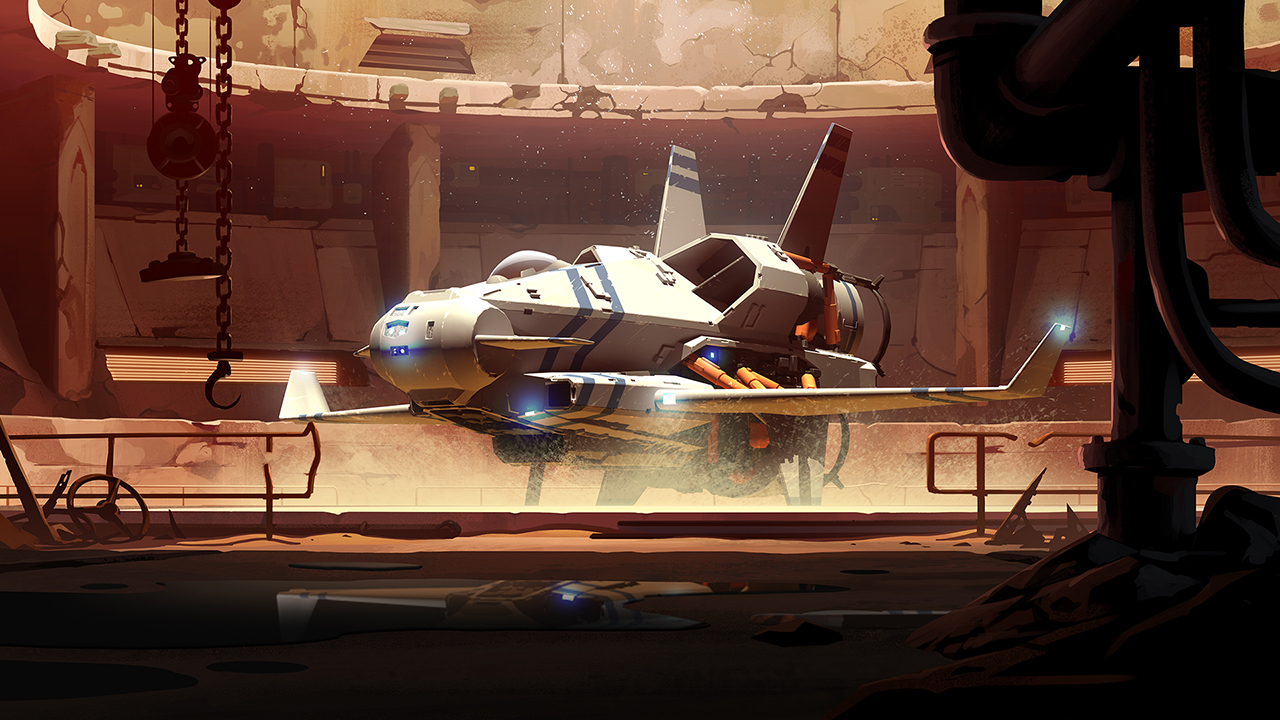
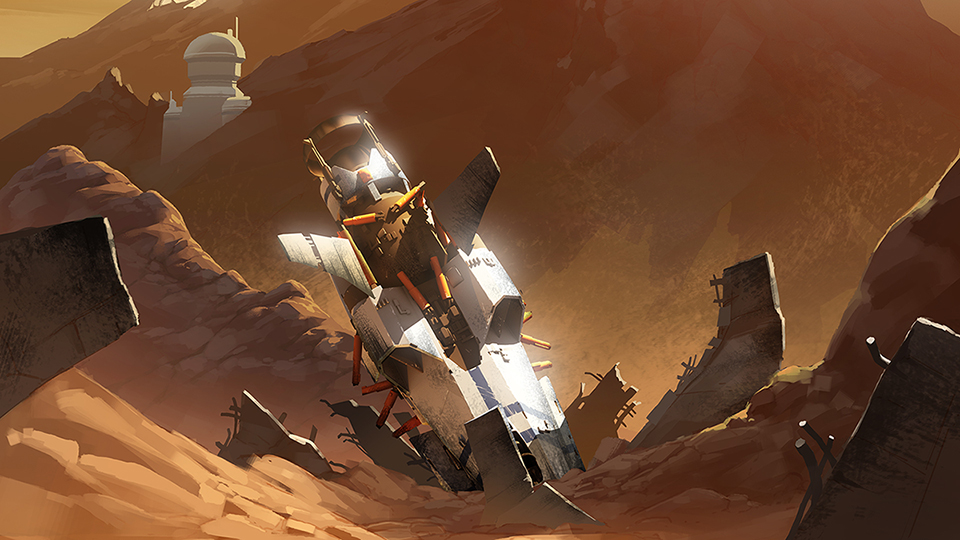
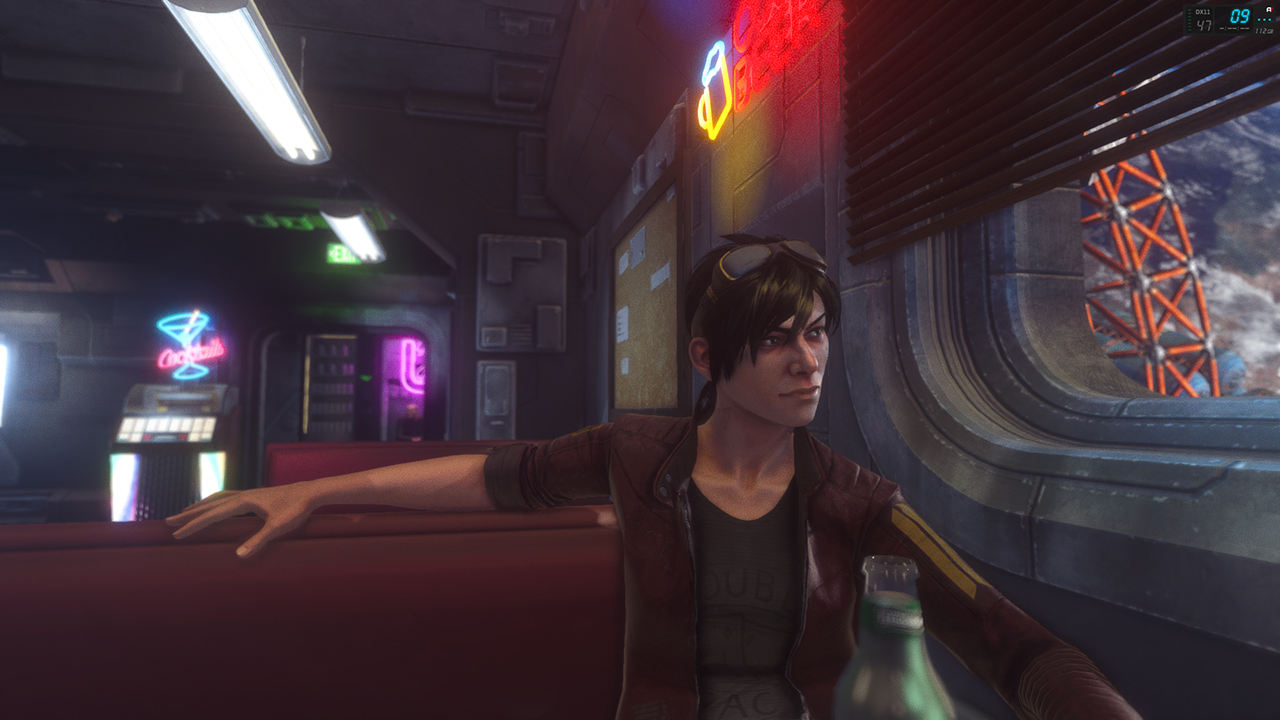
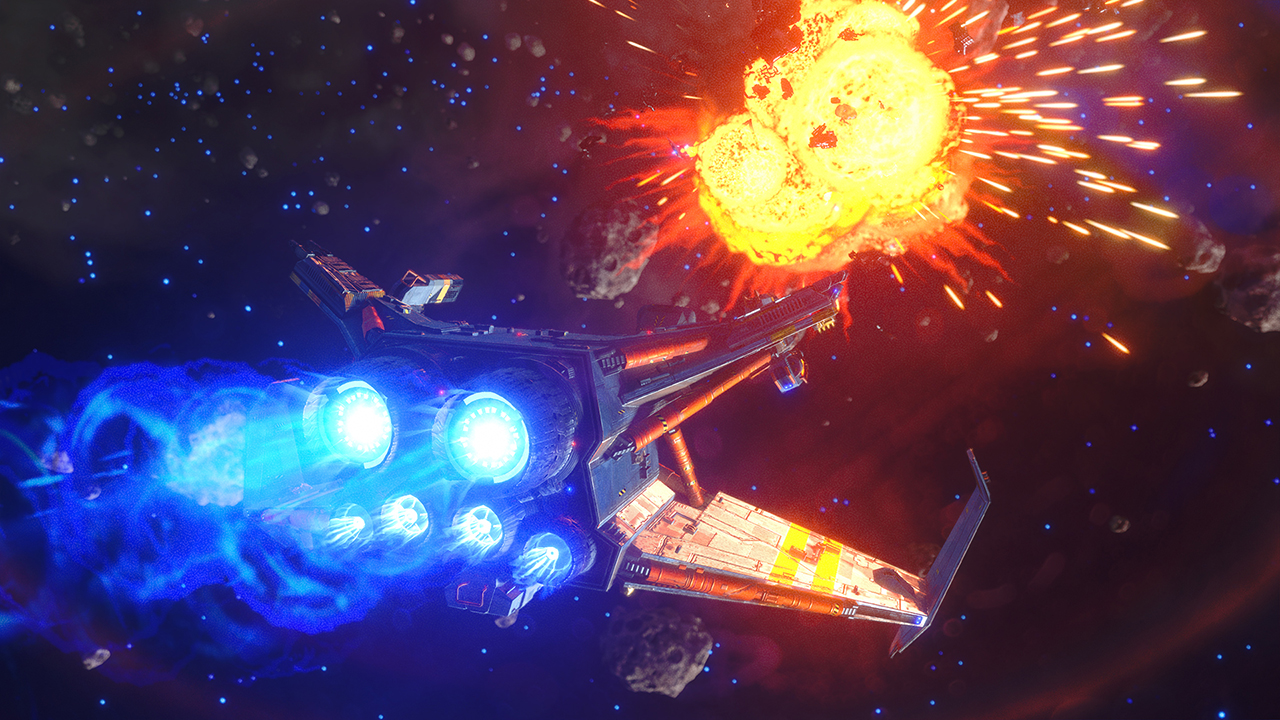
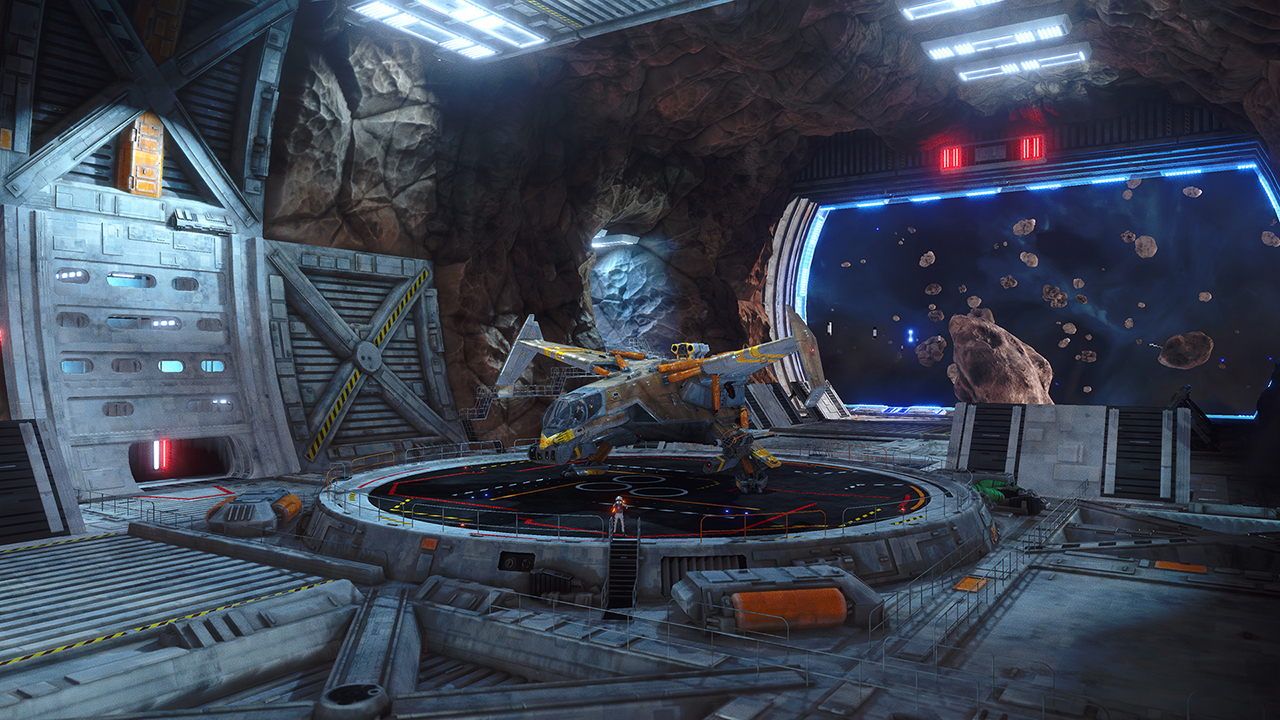
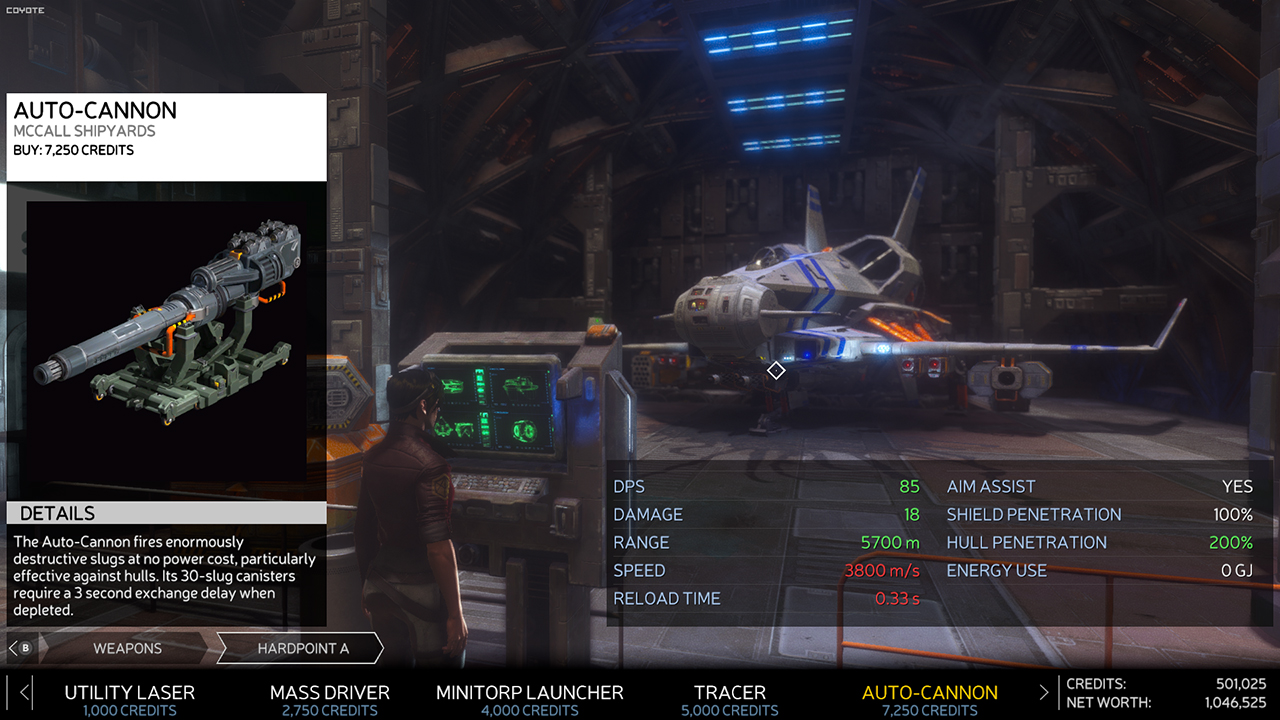
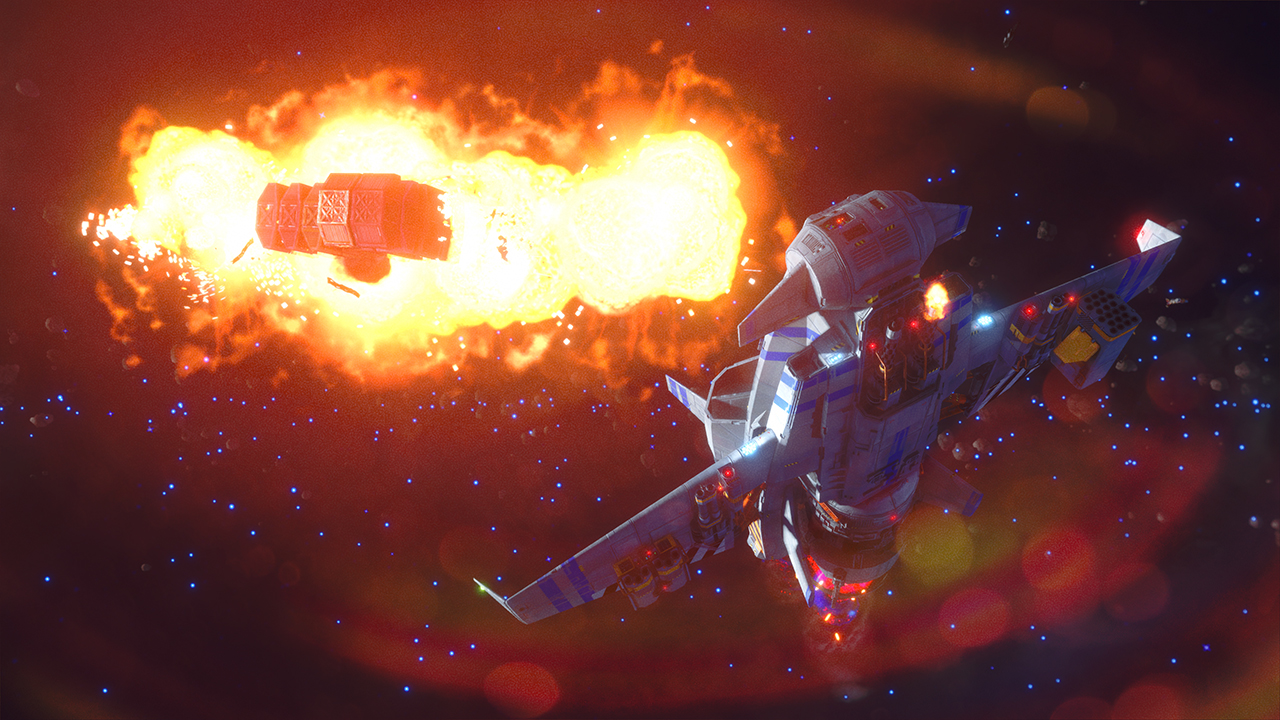

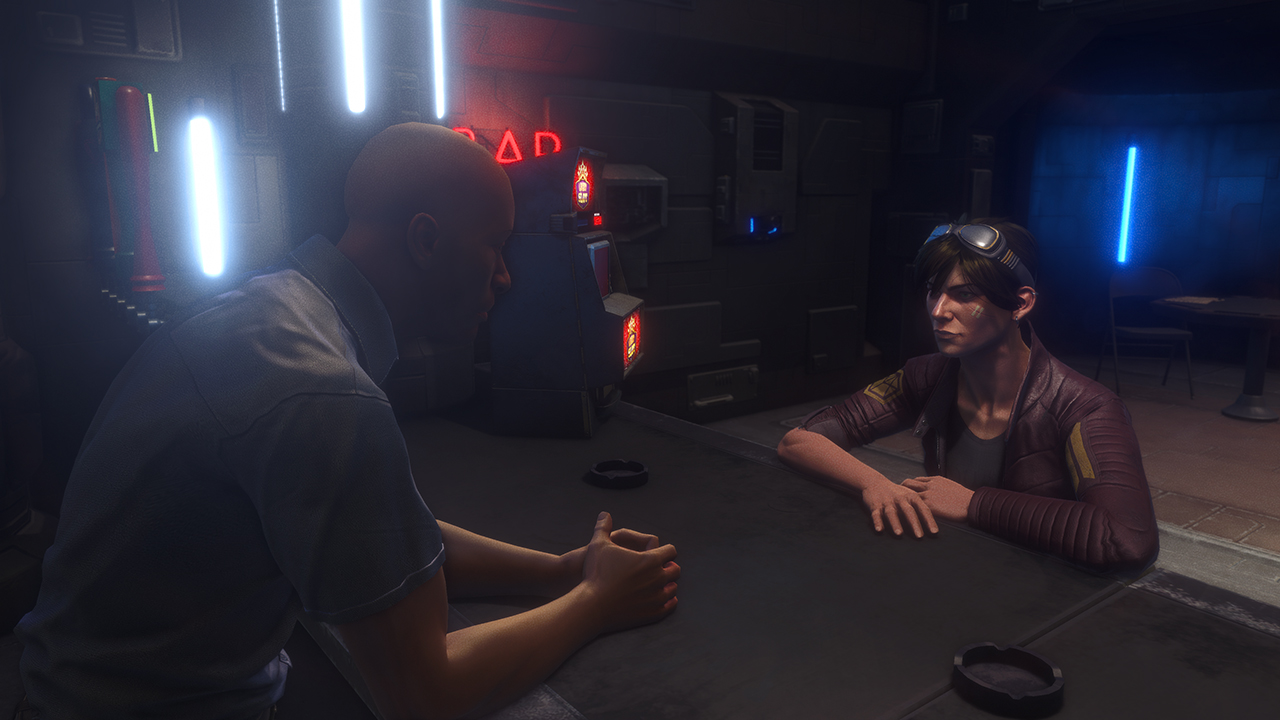





Published: Aug 12, 2019 12:08 am